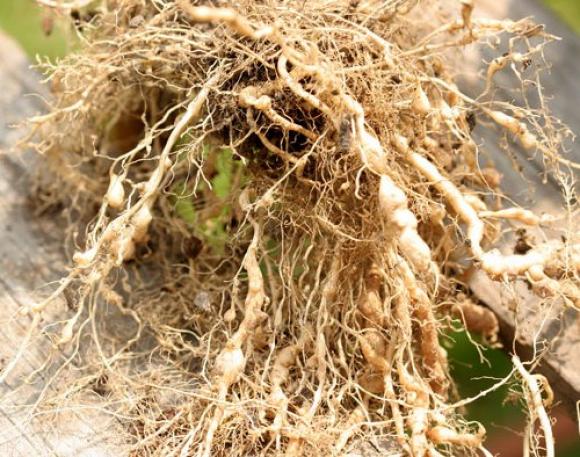-
About
- Our Work
- Get Involved
- Stay Updated

Agriculture is still considered to be one of the most important sectors of the economy, mainly because of its contribution to gross domestic product.
At present, the area under pomegranate is increasing steadily in Banaskantha and Kutch districts of North Gujarat. The crop is receiving nepotism from the farmers in view of its suitability to climatic conditions, less requirement of irrigation water, labours and comparative profitability.But recently, the area expansion of the crop has faced issues of root knot nematode. This group of nematodes are the most destructive for the crop.
Owing to its polyphagous nature and endoparasitic feeding habit, it is very difficult to control especially on established crops. It attacks numerous economically important crops and can also be found on many weeds.The warm climate favours the development of root-knot nematodes and soil temperatures, in these areas, for most of the year, are suitable for nematode activity. The nematode occurs throughout the year where intensive agriculture is practised. An estimate about the damage caused by this group of nematodes on pomegranate is very high in Gujarat.

Nematodes generally take 5 to 15 years to develop; but once developed, it is almost impossible to save the plant. When farmers buy any Tissue cultured plants there may b chance of having infected soil by nematodes. It enters in rout of a plant and very difficult to control. Precaution is the only way to safeguard a plot. To apply any nematicides in this area is very costly affair.
Control measures: Avoid Introduction of infected soil or plants or plantlet to your plot and avoid dumping any soil having nematodes or infected roots with.
About the author
Related Posts
Comments
No comments made yet. Be the first to submit a commentBy accepting you will be accessing a service provided by a third-party external to https://archive.ypard.net/
Get in touch
Email: [email protected]
YPARD Global Coordination UnitHosted by AGRIDEA and the Czech University of Life Sciences Prague
Lausanne, Switzerland and Prague, Czech Republic - Our Work

